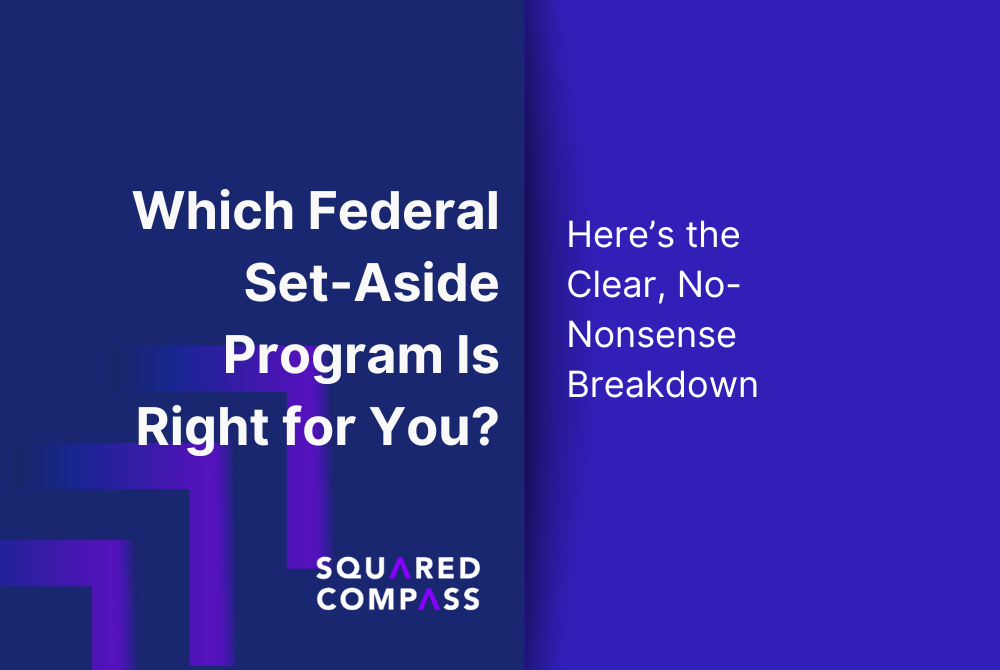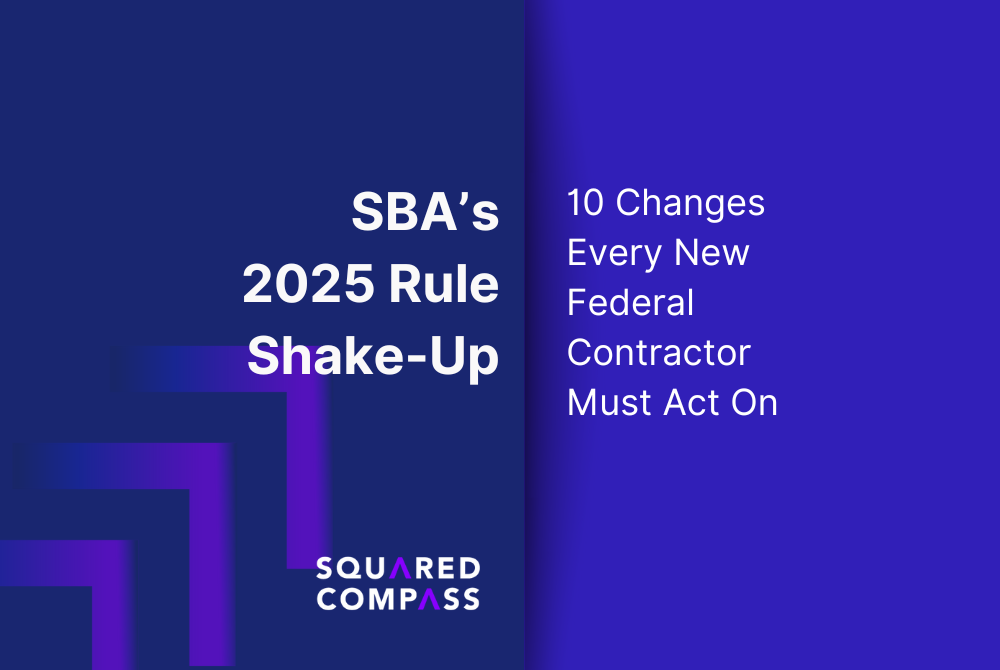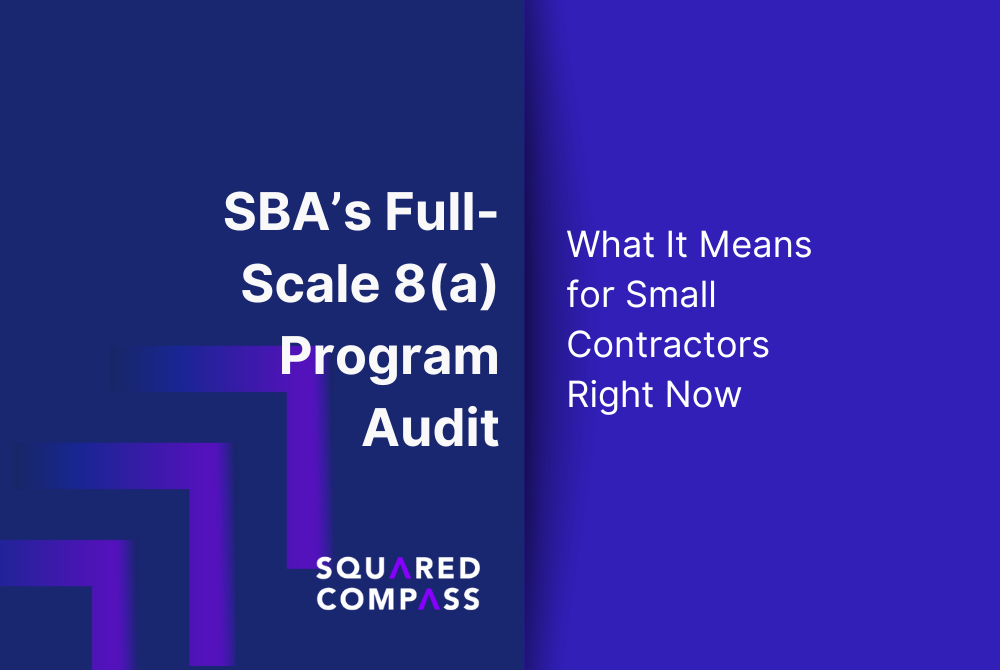Filter Resources by Tags

SBA’s Size Standards Are About to Shift , Here’s What Small GovCon Firms Need to Do Now
The Small Business Administration is gearing up to raise the revenue-based size standards that determine whether your business qualifies as “small” under federal rules. If you rely on 8a contracts services, women owned small business certification, or are pursuing disabled veteran government contracts, this could be one of the most important regulatory changes of the year.

Which Federal Set-Aside Program Is Right for You? Here’s the Clear, No-Nonsense Breakdown
If you’ve been circling the world of government contracting but aren’t sure which set-aside certification to pursue first, you’re not alone. The SBA and federal agencies offer a buffet of options, 8(a), WOSB/EDWOSB, SDVOSB, HUBZone, but choosing the wrong one (or going after all at once) can waste time, energy, and opportunity. With new rules tightening certification requirements and more agencies under pressure to meet small business goals, now’s the time to make a strategic choice.

SBA’s 2025 Rule Shake-Up: 10 Changes Every New Federal Contractor Must Act On
If you’re a small business eyeing federal contracting opportunities, the SBA has been busy rewriting the playbook. From size standard adjustments to new certification requirements, these rule changes aren’t just technical—they determine whether you can compete, win, and keep your contracts. Here’s what’s new, why it matters, and how to act now.

SBA’s Full-Scale 8(a) Program Audit: What It Means for Small Contractors Right Now
In a dramatic move that’s sending shockwaves through the federal contracting world, the SBA has ordered a full-scale, nationwide audit of the 8(a) Business Development Program. This isn’t a routine compliance check—it's a sweeping investigation triggered by a major bribery and fraud scandal involving over $550 million in rigged contracts. If your small business holds 8(a) certification, is applying, or even just partnering with 8(a) firms, this matters. A lot.

SBA’s New SBS Platform Just Rewrote the Rulebook for Small Contractors
The U.S. Small Business Administration just launched a major update to how government buyers find small business vendors — and if your company relies on being seen for set-asides or subcontracting work, this one matters. The new Small Business Search (SBS) platform, which officially replaced the old Dynamic Small Business Search (DSBS) in July 2025, is more than a facelift. It’s a full rebuild, and your visibility in the federal marketplace depends on how well you adapt to it.

SBA’s Non-Manufacturer Rule Gets a Major Overhaul—Here’s What Small Businesses Must Know
The Small Business Administration (SBA) just dropped a major update that every product reseller, distributor, and VAR in federal contracting needs to have on their radar. As of July 14, 2025, the SBA clarified the Non-Manufacturer Rule (NMR), tightening the screws on who can qualify for set-aside supply contracts—and when. If you supply goods to the federal government, especially under programs like 8(a), HUBZone, SDVOSB, or WOSB, this is going to impact how you bid, win, and stay compliant.

The SBA’s 2025 Non-Manufacturer Rule Update: What Every Small Business Reseller Needs to Know
The Small Business Administration (SBA) just dropped a major clarification on the Non-Manufacturer Rule (NMR), and it’s a big deal for anyone selling products in the federal market. If you’re a small business—especially if you’re chasing 8(a), HUBZone, SDVOSB, WOSB, or general set-aside supply contracts—this update spells out exactly when you need to comply, when you need a waiver, and what could get you disqualified. Here’s what you need to know to stay compliant and competitive.

SBA’s Contracting Assistance Programs: What Every Small Business Needs to Know in 2025
If you’re a small business owner looking to grow through federal contracting, here’s the blunt truth: you’re leaving money on the table without an SBA certification. The federal government awarded over $176 billion to small businesses last year—and more than a third of that came through set-aside programs. Whether you’re a woman-owned business, located in a HUBZone, led by a disabled veteran, or socially disadvantaged, the right certification can turn a door into a pipeline.

How to Read an RFP Like a Pro: The 10 Most Important Sections to Skim First
If you’re new to government contracting, Requests for Proposals (RFPs) can feel like reading stereo instructions written in legalese. And when you're juggling operations, BD, and proposal prep, you don’t have hours to dissect every word of a 60-page solicitation just to find out it’s a bad fit.

SBA’s 2025 Rule Shake-Up: What Small GovCon Firms Need to Know Now
If you thought your SBA certification was something you could “set and forget,” 2025 is here to shake up that assumption. A flurry of final rules and executive orders over the past year has rewritten the playbook on small business set-aside eligibility, M&A strategies, and how you hold on to that all-important “small” status. Whether you’re in the 8(a) program, pursuing women owned small business certification, or managing multiple 8a contracts services, these changes have direct—and potentially disruptive—implications.
